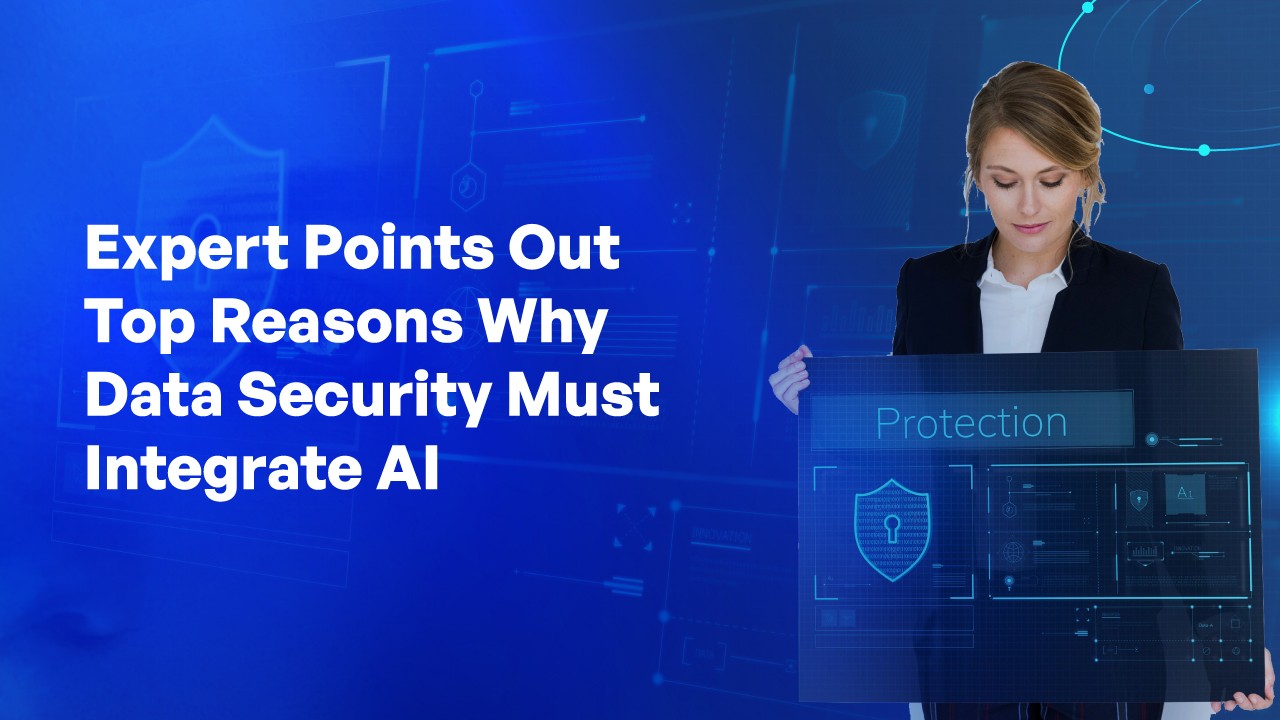
Expert Points Out the Top Reasons Why Data Security Must Integrate AI
Noam Biran, VP (Product) Velotix, outlines the 7 reasons he believes data security needs AI! In an article published by InsideBIGDATA, the former VP of product at the cybersecurity company Hunters shares his views.
Using data effectively is essential for success. Businesses use data to increase marketing effectiveness, spot revenue-generating possibilities, customize consumer experiences, and boost operational effectiveness.?
As data complexity increases, the problem of guaranteeing quick and secure access while maintaining regulatory compliance has grown to be more difficult.?
In this edition of our newsletter, we will look at a few crucial themes highlighting how urgently sophisticated and automated solutions are required to enable practical Data Security.?
Data Federation: Empowering Data Democracy
Data federation is a revolutionary advancement in company data architecture that helps firms achieve their full potential. The potential of querying data from several sources into a unified virtual format depends on better data quality and accessibility.?
Enterprises must implement a flexible framework for data security where local enforcement authority is granted to domain teams and centralized governance norms coexist.
The Rise of Data Mesh: Dispersed Data Realities
Traditional monolithic data infrastructures are gradually being replaced by the data mesh design. This change involves several scattered data sources, infrastructure, and pipelines. ?
However, managing security authorizations across these various contexts can be difficult, which can result in mistakes and inconsistencies.?
Navigating a Highly Dynamic Regulatory Landscape
The regulatory environment is becoming more and more complicated. Compliance with local, national, and international data privacy laws is complex for multinational corporations. ?
Data security must automatically react to the most recent legislative revisions and internal security standards because more than 130 nations have their own data privacy regulations.?
Shifting Data to the Cloud: Balancing Flexibility and Security
Businesses worldwide are switching from aging on-premises systems to the cloud for flexibility, scalability, and cost efficiency. ?
Organizations risk losing insight into their data assets due to increased reliance on third-party providers for data collecting, storage, and processing, making them more susceptible to cyberattacks and data breaches.
领英推荐
AI/ML: Fueling Data-Driven Decisions
Organizations may develop predictive insights, optimize processes, and make revenue-generating decisions with the help of artificial intelligence (AI). A steady stream of data is more necessary as the need for AI models rises.?
Ensuring secure access to data necessitates thorough oversight of numerous laws and internal security guidelines.
Data Explosion: Scaling Security for Growing Volumes
According to IDC's Global DataSphere, enterprise data is expected to double between 2022 and 2026. To manage this increase in data volume, businesses must scale up their security systems. ?
Moreover, there are increasing data consumers, such as workers, clients, suppliers, partners, ML models, and software programs.
Automated Policy Access Control: Streamlining Permissions
As permissions are allocated to user roles rather than objects and processes, traditional role-based access control (RBAC) has drawbacks. This method limits access to actions rather than data, making it challenging to maintain permissions significantly when employee roles change.?
?Policy-based authorizations provide a more practical option, but for this to work, AI must be trained to understand how data is used for precise authorization provisioning.
Intelligent Automation: The Key to Effective Data Governance
Organizations must have a firm data governance policy in the face of a data landscape that is becoming more complicated. Through intelligent automation, businesses can only keep up with the quick evolution of dynamic data teams, users, technologies, and laws. ?
Regarding monitoring, learning, and predicting how data will be used, AI is essential for ensuring that the correct individuals have access to data. This thus encourages the democratization of data and corporate success.
Data Security and AI: A Combined Way Forward
Data governance is becoming a requirement for businesses looking to succeed in the data-driven economy rather than an option. Adopting intelligent and automated solutions is a proactive move towards a future in which data serves as a potent engine for development and innovation rather than just a reaction to the present challenges.?
Those who embrace innovation will be the ones who shape the future, and at Inferenz, we're here to make sure you do it effectively and wisely. Let's get in touch and discuss how we might use emerging technologies, AI, machine learning, and Data Security to advance your company jointly.?
For more such insights and news, subscribe to our newsletter!